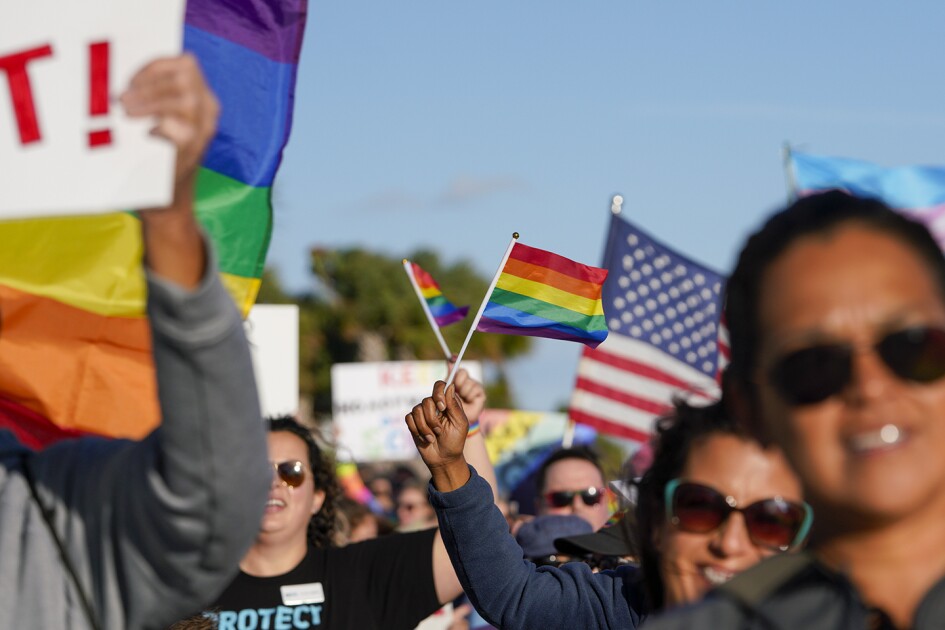Florida Teachers Could Lose Their Licenses Under New Rule Tied to ‘Don’t Say Gay’ Law – Education Week

Florida teachers who “intentionally” teach students in grades K-3 about gender identity or sexual orientation may lose their teaching license under a new proposed rule from the state’s Department of Education.
The proposed amendment to the state’s principles of professional conduct for educators enforces the state’s Parental Rights in Education law, known by opponents as the “Don’t Say Gay” law. The law prohibits such instruction in K-3 but allows teachers to teach these topics in an “age appropriate” manner in older grades.
The amendment was first proposed in August and approved by the state’s commissioner of education, Manny Diaz Jr. on Sept. 23—the day before Gov. Ron DeSantis declared a state of emergency for all of Florida due to the then-looming Hurricane Ian.
“It should not be surprising that educators are at risk of having their certificates sanctioned if they violate state law,” said Alex Lanfranconi, the director of communications for the state education department in an emailed statement. “The proposed amendment will change nothing for teachers who follow the law and are focused on providing high-quality classroom instruction aligned to state academic standards.”
The Florida education department didn’t answer questions on how precisely the state will determine when a teacher gets their license suspended versus getting their license revoked. The rule states, “violation of any of these principles shall subject the individual to revocation or suspension of the individual educator’s certificate, or the other penalties as provided by law.”
A final rule could be approved as early as this month.
Gay rights activists sued the department and the governor over the law earlier this year, claiming it violates the freedom of speech and equal protection rights of LGBTQ students and families.
“We haven’t yet seen final, approved language of the rule that could impact the licensure of teachers based on HB 1557. However, we are monitoring their meeting to discuss the proposed language next week,” said Brandon Wolf, press secretary of Equality Florida, the nonprofit LGBTQ advocacy group that filed the lawsuit.
“This move would mark a dangerous escalation by the Department of Education to expand enforcement of the law beyond its language and target individual teachers, threatening them with career ruin for acknowledging the existence of LGBTQ people” he added.
The president of the state’s largest teachers’ union, the Florida Education Association, said in an emailed statement: “Our students would be better served if state officials and lawmakers focused less on threatening and punishing teachers, and more on retaining and recruiting them.
“Florida has a severe shortage of both teachers and support staff. Bringing the culture wars into our classrooms will only make the situation worse.”
Florida made headlines earlier this year for addressing staffing shortages by lifting the requirement of a bachelor’s degree to allow more military veterans to work in classrooms.
In a similar case to the Florida license rule change, the Oklahoma secretary of education, Ryan Walters, recently publicly demanded that the state board of education revoke a high school English teacher’s teaching certificate following the teacher’s efforts to fight back against book ban efforts in her school.
(Walters, a cabinet-level official in the Oklahoma governor’s office, is running for the position of the state superintendent, who oversees Oklahoma schools.)
